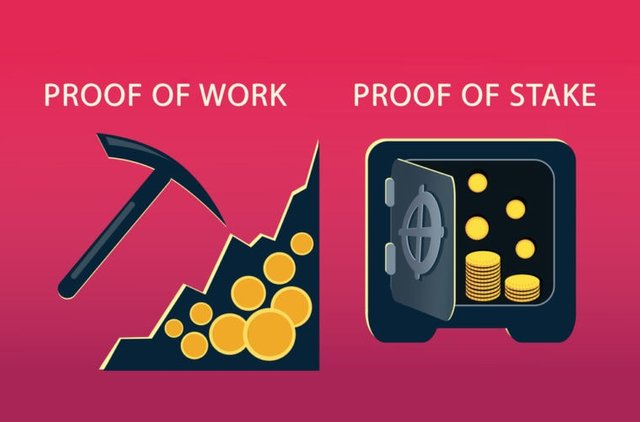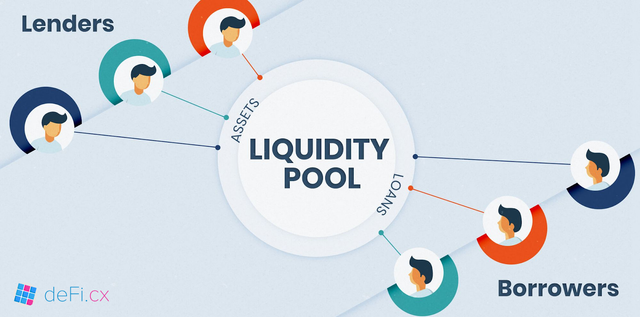Best cryptocurrency strategies for huge gains.
If you're not staking your crypto holdings and earning rewards as a holder, it's like putting your life savings in a bank and telling the suits to keep the interest. Crypto staking can be a very fruitful way to increase your crypto returns and also on passive income on the cryptos that you don't want to sell. Today, I want to go over the very best ways to add passive income on your cryptocurrency. I'd explain what staking is, why so many people do it, ways to earn income on your cryptos, what coins support staking and the best strategies to get the most income and returns overall.

image source
So firstly, let's come to staking and what it actually is and different ways to earn income on your crypto. Staking specifically refers to the process of putting your coins up as collateral in a proof of stake. It's really important to know how proof of stake works, why you're putting your coins up for staking, and what happens when you do proof of stake.
In a modern evolution of how blockchains work, cryptos like Bitcoin are built on proof of work blockchains, which means that the computers that keep the network running use powerful computer systems and huge amounts of energy, simply to work out the answer to a complex question. If a computer works out the answer first, they get rewarded with Bitcoin which is known as mining. The problem here is that the only people who can gain rewards are the minors whereas us investors are left out. Proof of stake is different, more modern and more inclusive because the computer power needed for the complex calculations in proof of work are in reality.
There are many different versions of proof of stake, but in essence, nodes in the blockchain are given the task of keeping the network in good order. Instead of doing work, they simply put up coins as collateral. If they don't keep the network in good order their coins will be slashed, which is a financial penalty. If they do their job properly, they'll be in the running to receive a portion of the fees spent on the network investors.
Luckily, we can participate in a staking pool where we can pull our investment with other small investors and give them over to a service provider who can stake them for us, giving us our rewards whilst taking a small cup for the service provided.
Crypto staking isn't available on all cryptocurrencies, but only those built on proof of stake.
Blockchains coins built on proof of work blockchains like Bitcoin can't be stated to earn rewards, but if you own Bitcoin, you can still add some income on your holdings by using other financing methods. So with our passive income strategy, we can use three main methods to earn income.
Number one is staking. We can stake in a variety of coins, built on proof of stake, blockchains like Cadano and Polkadot. Personally, coins that are of higher value are the ones I'd be looking to stake for instance, coins like Cadano and Polkadot are prime examples. When you stake coins, you don't have access to them during the staking period because they're being used as collateral. So it's important to consider what the price of that crypto will do during the staking period.

image source
The second way to earn is to lend out your coins to market participants because traders often need to borrow coins to settle trades, and for various other reasons. Instead of buying Bitcoin, it may be cheaper for them to borrow Bitcoin and pay a small fee. You can use a service that pulls your Bitcoin with others and loan it out to traders for a fee and in return, you'll get a payment for use of your Bitcoin.

image source
The third way to earn income on your holdings is to place them into a liquidity pool. Classic examples of this are Uniswap and Binance liquid swaps with swaps. You put up your coins into a pool so that other people can trade them and you'll earn a fee for doing so. Liquidity pools in my opinion are incredibly difficult to navigate and can potentially cost you money overall rather than just holding your coins. I prefer something like Binance liquidity pools over Uniswap right now because of the astronomical gas fees on the Ethereum network.

image source
If you put your coins over to the liquidity pools in Uniswap, liquidity pools are really quite complex and there's no guarantee that you'll actually be making money overall compared to having them in a normal exchange. So you have to make sure you do your calculations correctly. If you want to use one of these also with the current gas fees on the Ethereum network, right now, it makes trading in and out of these pools extremely expensive and probably not a good deal overall, which is the main reason why I don't consider using Uniswap for my investments, but you're different than me so you know which strategy is best for you.
Keep steeming,
@brayan256